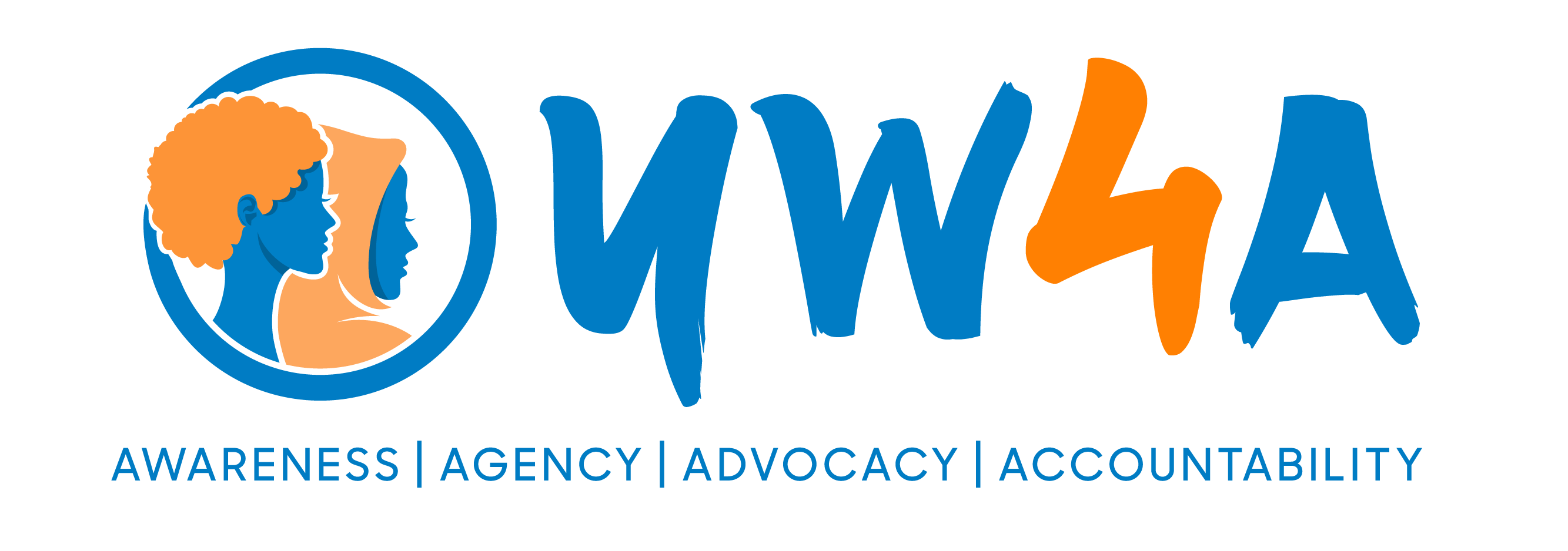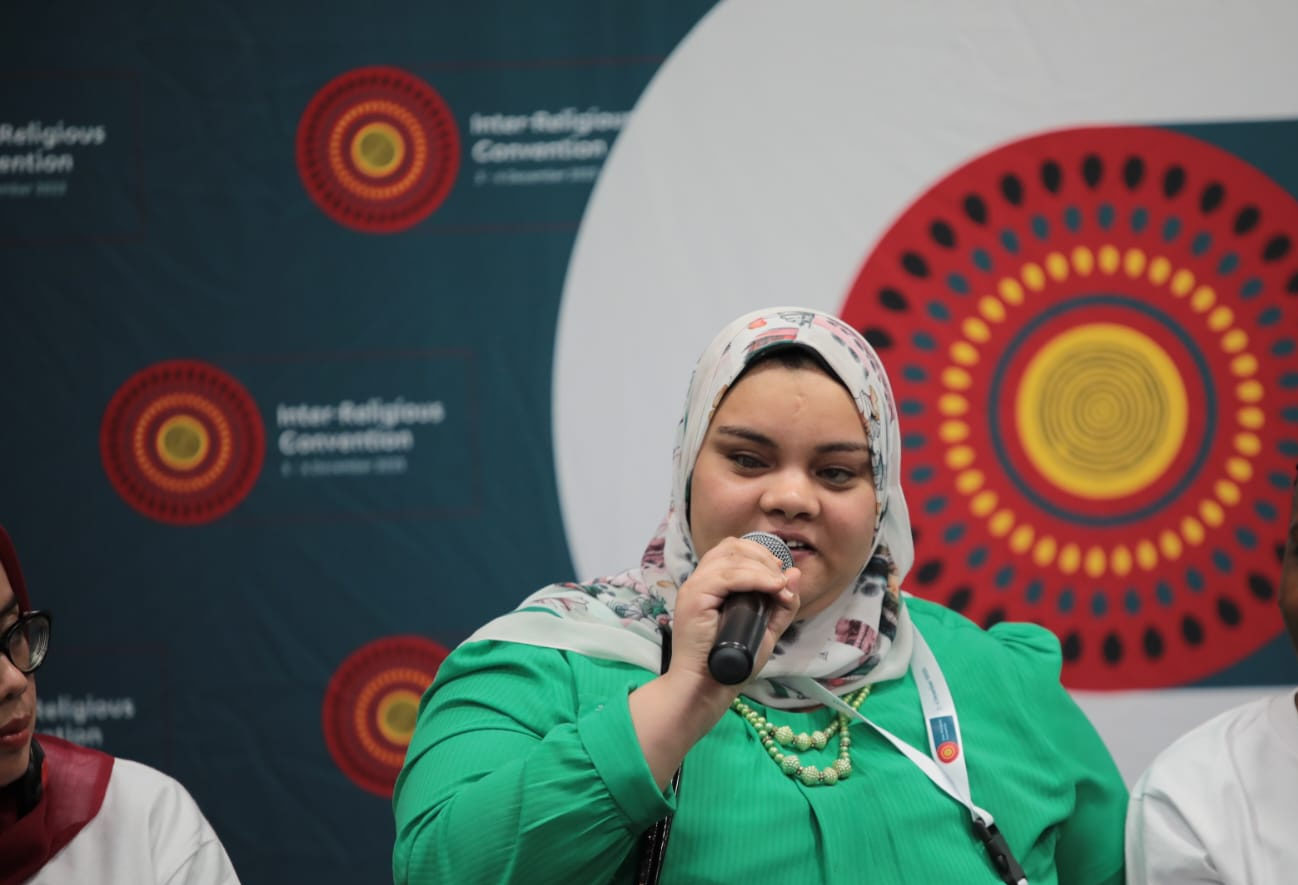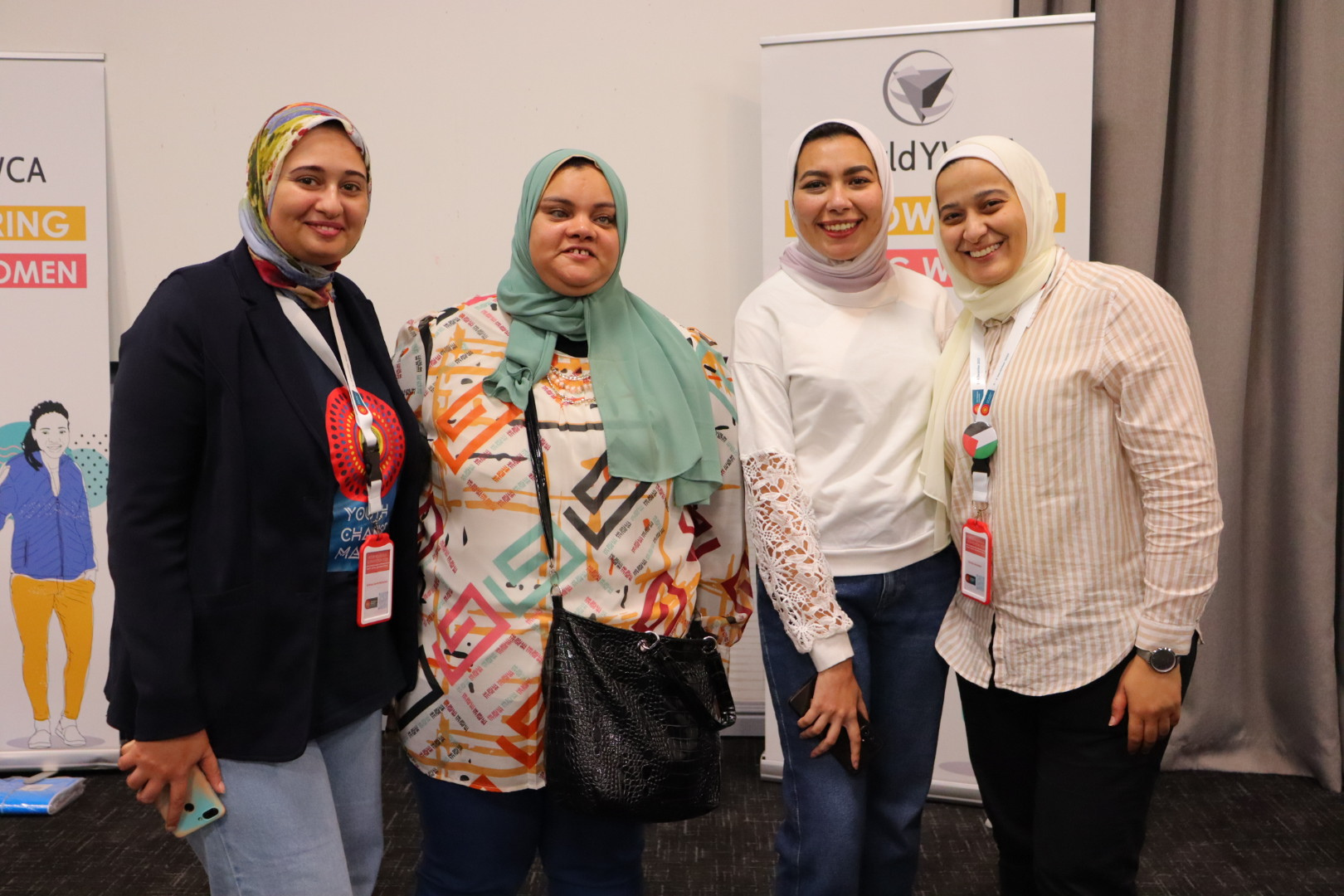The Young Women for Awareness, Agency, Advocacy, and Accountability (YW4A) initiative actively identifies and maximises opportunities for young women to demonstrate leadership and engage in meaningful discussions across various advocacy platforms. Using a merit-based approach, the initiative offers opportunities to young women whose interests and potential align with each specific endeavour. This approach promotes equal access and encourages young women, particularly those from marginalised backgrounds with limited resources, to participate in advocacy spaces.
Representing Palestine, 27-year-old Suad Khleif was one of three young women selected to attend the Sexual Violence Research Initiative 2024 Forum (SVRI2024), held from 21 to 25 October in Cape Town, South Africa.

In this interview, Yasmin reflects on her experiences and the valuable lessons she gained from the international convening.
Question: What was your motivation to apply for and to attend SVRI2024?
Suad: My motivation to attend the SVRI conference stemmed from a strong commitment to addressing and preventing gender-based violence through evidence-based solutions. The event provided a valuable opportunity to engage with global experts, learn about innovative practices, and exchange insights from diverse cultural and professional perspectives. It also offered a platform to expand my network, collaborate with like-minded individuals, and enhance my skills to make a meaningful impact in this crucial field.

Q: What are the main takeaways from the Forum?
- Feminist Consultation Methodology: This approach emphasises participatory feminist practices that ensure inclusive and equitable decision-making by centring the voices of women and marginalised groups. YW4A is integrating this methodology to strengthen its advocacy campaigns and amplify community leadership.
- Intersectionality in Practice: This concept stresses the importance of addressing intersecting forms of discrimination, such as race, gender, and socioeconomic status, to create more inclusive and equitable programs. YW4A applies this lens to enhance advocacy for diverse groups.
- Strengthening Partnerships: The value of collaboration between governments, NGOs, and local communities was highlighted. YW4A partners can leverage this by building alliances that amplify advocacy efforts and facilitate resource sharing.
Q: Who did you connect with in the event?
Participating in group discussions allowed me to exchange ideas and share experiences with like-minded individuals, creating meaningful connections. I also engaged with representatives from leading organisations working on gender-based violence and advocacy by attending their presentations and visiting their booths. Informal networking during breaks and social events provided a space to build rapport and discuss potential collaborations. At the booth, visitors engaged in meaningful discussions about our work and its impact. These conversations provided opportunities to share best practices, gather feedback, and explore potential collaborations. Many attendees expressed interest in our approach to advocacy and empowerment, and we provided materials and insights tailored to their areas of interest. The booth also served as a platform to strengthen our visibility and build lasting relationships with partners and allies who can contribute to advancing the YW4A’s goals.
Among the interesting people I met were Florea Makwakwa from Family Health Service; Siam Mohamoud Siha, Project Coordinator at Siha Network; Alma Tayel, Programme Officer at Johns Hopkins University; and Reham Abo Elfadl, Senior Programme Officer at Population Council.

Q: What topics and sessions interested you the most?
The topics, presentations, and sessions that interested me the most were those that focused on strategies for addressing harmful social and gender norms, particularly in humanitarian settings. I was inspired by the session on engaging faith leaders and communities, where strategies for leveraging trust to challenge patriarchal beliefs were shared. This directly applies to YW4A’s work, especially involving religious leaders as allies in advocacy efforts.
I was also deeply moved by Emma Fulu’s presentation on the impact of Indigenous feminist movements in Australia. The grassroots efforts to centre Indigenous voices and traditions in violence prevention highlighted the power of culturally relevant activism, which is something we can learn from and integrate into our own work.
Additionally, the session on co-creating interventions with affected communities, particularly to improve adolescent girls’ and women’s access to services in refugee camp contexts, stood out to me. It emphasised the importance of empowerment and ownership, key principles we apply to advocacy and community engagement. These insights are valuable for advancing YW4A’s efforts.

Q: How are you planning to apply the learnings you received in your life, in your community, or in the YW4A programme?
The event’s outcomes have inspired me to integrate more survivor-centred, intersectional, and community-driven approaches into the YW4A Programme. Specifically, I plan to advocate for including feminist consultation methodologies in our programme design and implementation, ensuring that marginalized voices, particularly from Indigenous and refugee communities, are central to the process. Additionally, I aim to strengthen partnerships with local faith leaders to challenge harmful social and gender norms within the communities we serve, especially in humanitarian settings.
I must gather resources such as case studies and data collection methodologies to support these changes to ensure the approaches are evidence-based and culturally relevant. Gaining support from organisational leaders and continuous training for the team on intersectional approaches and community engagement will be essential for successfully implementing these initiatives.

Q: What are your recommendations to improve the experience for Young Women in future events and conferences to specifically address the needs and interests of the YW4A programme?
To improve the experience for young women at future events and conferences, specifically addressing the needs and interests of the YW4A programme, I would recommend:
- Increase the representation of young women speakers and panellists: It is crucial to ensure that young women, mainly from marginalized backgrounds, are included as speakers, panellists, and moderators. This would amplify their voices and serve as a source of inspiration and leadership for others.
- Interactive, participatory sessions: Future events should incorporate more hands-on workshops and collaborative sessions where young women can co-create solutions, learn from real-world examples, and actively contribute to shaping the content. This approach will facilitate deeper learning.
- Practical tools and resources for advocacy: Provide young women with practical tools and resources to return to their communities. These could include training materials, digital resources, and templates for advocacy campaigns, empowering them to put their learning into practice.




